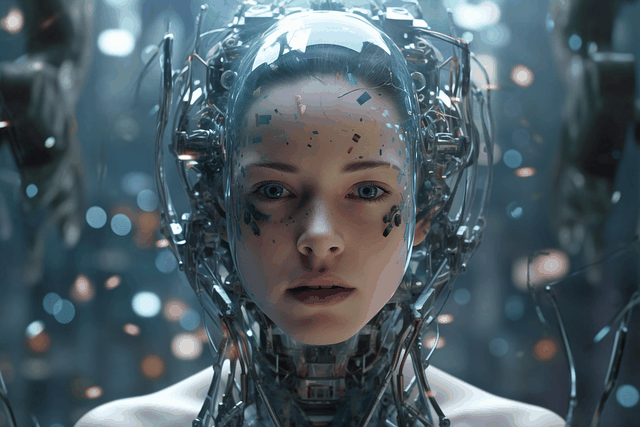Generative Agents: Simulating Human Behavior with AI
Explore the cutting-edge world of generative agents, where artificial intelligence simulates human behavior to unlock new possibilities in healthcare, entertainment, education, and more.
Explore the cutting-edge world of generative agents, where artificial intelligence simulates human behavior to unlock new possibilities in healthcare, entertainment, education, and more.

In the ever-evolving landscape of artificial intelligence, generative AI has emerged as a game-changer. It's not just about machines learning from data anymore; it's about them creating, imagining, and even simulating human behavior. Welcome to the fascinating world of generative agents, where AI is not just a tool but a companion, a creator, and perhaps, a glimpse into the future.
Generative agents are a type of AI that can generate new content, ideas, or behaviors based on the data they have been trained on. Unlike traditional AI, which is focused on recognizing patterns and making predictions, generative AI is all about creation. It's like comparing a detective (traditional AI) to a novelist (generative AI). One solves mysteries using clues, while the other creates entire worlds from imagination.
The magic of generative AI lies in its ability to learn from examples and then produce something new and original. It's like teaching a child how to draw a cat by showing them several pictures. Eventually, the child can draw a cat that looks similar but is uniquely their own. Generative AI works similarly, learning from data and then producing something that is both derivative and novel.
One of the most popular examples of generative AI is GPT-3, developed by OpenAI. GPT-3 can write articles, compose poetry, and even generate code, all by learning from vast amounts of text data. It's like having Shakespeare, Hemingway, and Turing all rolled into one AI!
Now, let's dive into the heart of our topic: simulating human behavior with AI. Generative agents are not just content creators; they are also behavior simulators. They can mimic human actions, decisions, and even emotions, providing a window into human psychology and sociology.
For instance, imagine a generative agent trained on social media data. It could simulate how people react to different news events, predict trends in public opinion, or even identify the triggers of viral content. This is not just useful for marketers and sociologists; it's a step towards understanding the complex web of human interactions.
The potential applications of generative agents are as diverse as they are exciting. In healthcare, they could simulate patient behavior to improve treatment plans or predict the spread of diseases. In entertainment, they could create personalized content, like movies or music, that adapts to the viewer's preferences. In education, they could simulate student learning processes to develop more effective teaching methods.
One intriguing application is in the field of robotics. Generative agents could be used to teach robots how to interact with humans more naturally. Imagine a robot that can not only understand your commands but also anticipate your needs and react to your emotions. That's the power of generative AI!
Of course, the journey of generative AI is not without its challenges. One of the biggest hurdles is ensuring that the generated content or behavior is ethical and unbiased. AI learns from data, and if that data contains biases, the AI will too. It's like the old saying, "Garbage in, garbage out." Ensuring that generative agents are fair and responsible is a significant challenge for researchers and developers.
Another challenge is the complexity of human behavior. Simulating human actions is one thing, but replicating the nuances of human emotions and thoughts is a whole different ball game. As we venture deeper into the realm of generative AI, we must tread carefully, ensuring that we respect the intricacies of human nature.
As we look towards the future, it's clear that generative agents will play a crucial role in shaping our world. They will not only help us understand ourselves better but also create new forms of art, entertainment, and technology. The possibilities are as limitless as our imagination.
However, with great power comes great responsibility. As we develop and deploy generative AI, we must ensure that it is used ethically and for the betterment of society. It's not just about what AI can do, but what it should do.
In conclusion, generative agents are a testament to the incredible potential of artificial intelligence. They are not just simulating human behavior; they are opening new doors to creativity, understanding, and innovation. As we continue to explore this fascinating frontier, let's embrace the opportunities and challenges that come with it. After all, the journey of generative AI is not just about creating something new; it's about discovering what it means to be human.